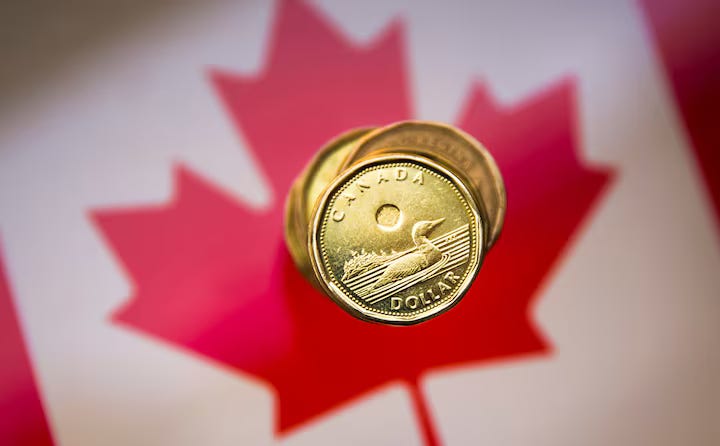What Factors Affect the Foreign Exchange Rate? Part 2: Applications of the Basic Model of Foreign Exchange Rate Determination
How do changes in U.S. interest rates affect the Canadian dollar? What about changes in Canadian budget deficits, trade policies, and political uncertainty (such as due to threats of separatism)?

Last week, I went through the process of developing a model which identifies forces that determine key macroeconomic variables — for example, net exports, net capital outflows, national saving, domestic investment and real exchange rates — and show how they relate to one another.
Today, we will have some fun with the following applications of that model:
Change in the Real World Interest Rate: I will assume the shock to the Canadian economy is in the form of a rise in the world interest rate — which can be assumed to be the U.S. rate. Although the U.S. is not literally “the world”, its interest rate is a significant determinant of our interest rate.
Budget Deficits and Surpluses: A government budget deficit represents negative public saving (T - G), which in a closed economy:
Reduces the supply of loanable funds
Drives up the interest rate
Crowds out investment
What if we have an open economy? This will be a question answered today.
International Trade Policies and Changes in Relative Tastes: Suppose Canadian voters elect a madman who believes that tariffs will solve all of our problems. Are they correct in arguing that such protectionism will help raise trade surpluses?
Alternatively, we may assume Canadians and/or foreigners develop a greater taste for Canadian goods and services relative to foreign goods and services.
Political Instability and Capital Flight: For example, in 1994 world financial markets became very nervous regarding investment in Mexico due, in part to the assassination of a prominent political leader. Investors therefore pulled a lot of funds out of the Mexican market, which is known as capital flight.
Additional question: Could capital flight happen in Canada and the U.S., for example due to threat of separatism? I will answer this question today.
But before I begin, if you enjoy what I write and find it valuable, please consider a paid subscription. It will help me devote more resources into what I write so it will get even better!
Applications of the Basic Model
Introduction
For the following applications, I will assume both net capital outflows (NCO) and net exports (NX) are both positive, because that has generally been true for Canada during the 21st century, but the main conclusions and lessons of this post remain unchanged if we assume NCO < 0 and NX < 0.
I will also always assume Canada is a small open economy (definitely true) with perfect capital mobility (PCM); while we do not have perfect capital mobility, it is not an unreasonable assumption. Furthermore, it makes the analyses easier without affecting the most important predictions made in the applications below.



